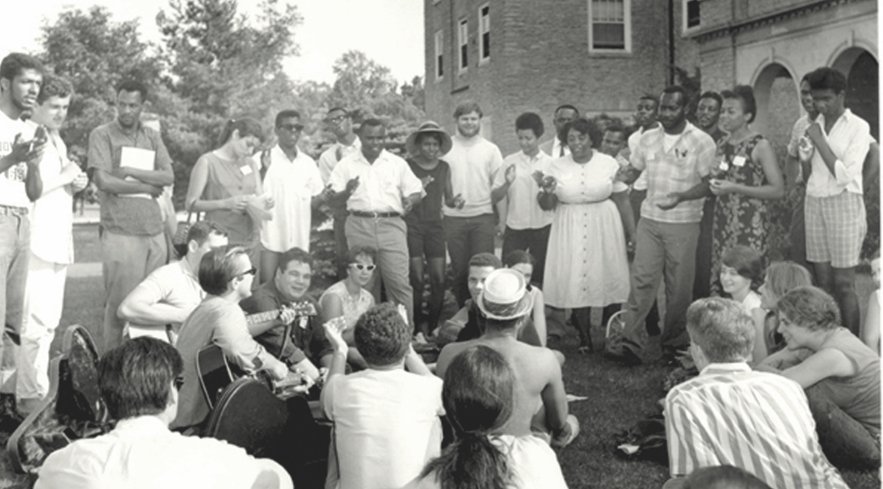
Education to Action Award
The Institute for Common Power’s motto, “Education to Action,” seeks to help people contextualize our modern world through a deep exploration of historical truth. A knowledge of history sustains our energy to create a just and inclusive democracy because history functions as both prologue and primer. It extends to us warnings as it fills us with the hope and determination necessary to change the world, necessary to redress the evils of the past as we uplift those around us.
The Institute for Common Power annually selects an individual who embodies our mission of ushering people through the process of Education to Action. The honored individual demonstrates, through their personal and professional endeavors, that a knowledge of history and the attendant contemporary outcomes can and must lead to action that fosters a more just democracy.
Education to Action Award 2023 Recipient Dr. Harry Edwards
When Edwards published The Revolt of the Black Athlete (1969), which connects the activism of Black athletes to the broader protest movements of Black citizens nationwide, it advanced his career and national visibility while further solidifying the ire harbored for him by federal agents. Edwards’s writings, together with his activism while a professor at SJSU and later the University of California, Berkeley, where he began teaching in 1970, afforded him the dubious status of having a Federal Bureau of Investigation (FBI) file. Edwards was added to the FBI’s ADEX list, a compilation of people FBI director J. Edgar Hoover deemed anti-American and a domestic threat because of his continued efforts to bring equity to African Americans nationwide.
During fall of 1967, what Edwards described as “a revolt of black students and athletes” at SJSU further catalyzed Edwards, Smith, and Carlos and led in part to the inception of the Olympic Project for Human Rights (OPHR).
Continual racial injustice across the nation during the summer preceding the 1968 Olympics, together with the limited success they experienced at SJSU, led Edwards and the students to broaden their efforts. The upcoming Olympic Games, they reasoned, could provide a platform to call attention to issues that plagued Black America. Their concerns and efforts coalesced in the OPHR.
Since that historical moment, Dr. Edwards has continued to work toward creating a just democracy. He taught sociology for decades before retiring from the Academy. He now serves as a consultant to major teams like the San Francisco 49ers. In 2023, Dr. Edwards released "Activism with Athletes," his recent documentary series about the history of African Americans, sports, and activism.
Born in East St. Louis, Illinois, in 1942, Edwards was a star high school athlete and an exceptional student. After graduating from San Jose State University (SJSU) in 1964, he did his graduate work at Cornell University. Now recognized as a pioneer in the sociology of sport, Edwards was subject to abject scrutiny and racist reproach while a doctoral student.
His experience was hardly unique among African Americans in higher education and served as a stark reminder that achieving an elevated educational and class status would do little to assuage the racism that defined America. Even Edwards’s research was subject to racialized suspicion and contemptuous review. His dissertation, which focused on the intersection of race and activism among Black athletes, was dismissed, questioned, even disdained by certain faculty. As a result, they required him to write more than 1,200 pages to either dissuade him from completing it or render it nearly impossible to do so.

